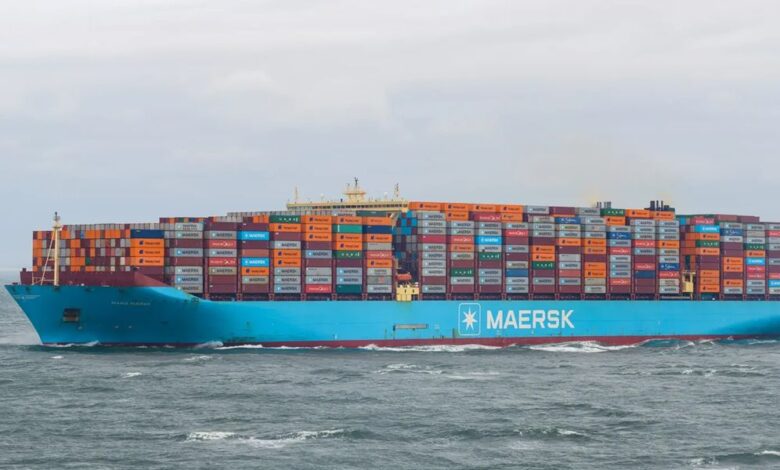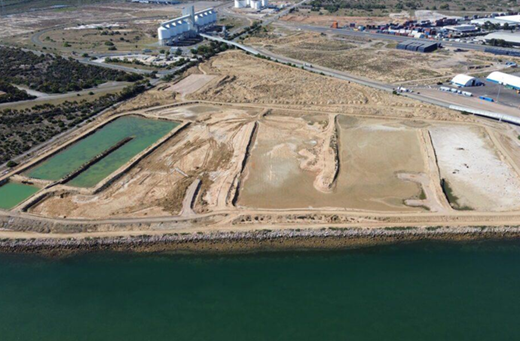CANADA Daily News and Updates
Air Updates
• The Airline Industry’s Dirty Secret: Clean Jet Fuel Failures
Ocean Updates
• Nothing Can Stop Falling Trans-Pacific Container Rates: Analyst
International Business/Government
• In India, Trump’s Tariffs Spark Calls to Boycott American Goods
Air Updates
The Airline Industry’s Dirty Secret: Clean Jet Fuel Failures
In 2019, Scott Kirby, the chief executive of United Airlines, hailed its new contract with green jet fuel producer World Energy as an example for the aviation industry to follow in its drive to cut emissions. Six years later, that collaboration is dead.
Boston-based World Energy was one of the first companies in the world to produce commercial quantities of sustainable aviation fuel (SAF), a type of renewable fuel made from sources such as used cooking oil, agricultural residues and other waste.
Its Paramount refinery near downtown Los Angeles had been a rare success story, supplying millions of gallons of SAF a year to airlines such as United Airlines and fellow U.S. carrier JetBlue Airways.
The plant, which began operations in 2016, was central to the carriers’ pledges to help the airline industry switch to a blend of 10% SAF by the end of this decade.
But the refinery quietly ceased operations in April. And World Energy’s plans for a second plant in Houston have stalled amid a lack of commitment from the industry, according to Chief Executive Gene Gebolys.
“Some airlines were engaged in a pretty disingenuous effort to put out press releases” overstating their commitment to SAF projects, Gebolys said, without naming any companies. “People sometimes said too much in the past and did too little.”
Read more in an article from the American Journal of Transportation.
Ocean Updates
Nothing Can Stop Falling Trans-Pacific Container Rates: Analyst
Ocean container spot rates on the benchmark Far East-U.S. route moderated their steep declines that saw an average 53% drop since June to destinations on the East and West coasts.
The latest update from shipping consultant Xeneta has market average spot rates from the Far East to U.S. West Coast at $2,098 per forty foot equivalent unit (FEU), down 3% from July 31, and $3,311 to the East Coast, 9% lower in that time.
Those declines compared with a 62% decrease to the West Coast since June 1, and 53% to the East Coast since June 15, after falling a further 9% since June 31, to $2,015 per FEU.
“Carriers have taken action to arrest the plummeting average spot rates on the trans-Pacific trade to the U.S. West Coast through strong capacity management, with blanked sailings now almost double the level in mid-June,” said Peter Sand, Xeneta chief analyst, in a research note.
“The dramatic spot rate decline has slowed in August so the stronger capacity management is having some success for carriers, but this is limited and not enough to stop the downward trajectory in coming months.
“With significant overcapacity in the global container shipping fleet and a muted forecast for demand, keeping spot rates elevated will be like holding back the tide, no matter how hard carriers try.”
Read more in an article from American Shipper.
International Business/Government
In India, Trump’s Tariffs Spark Calls to Boycott American Goods
From McDonald’s and Coca-Cola to Amazon and Apple, U.S.-based multinationals are facing calls for a boycott in India as business executives and Prime Minister Narendra Modi’s supporters stoke anti-American sentiment to protest against U.S. tariffs.
India, the world’s most populous nation, is a key market for American brands that have rapidly expanded to target a growing base of affluent consumers, many of whom remain infatuated with international labels seen as symbols of moving up in life.
Although there was no immediate indication of sales being hit, there’s a growing chorus both on social media and offline to buy local and ditch American products after Donald Trump imposed a 50% tariff on goods from India, rattling exporters and damaging ties between New Delhi and Washington.
On Sunday, Modi made a “special appeal” for becoming self-reliant, telling a gathering in Bengaluru that Indian technology companies made products for the world but “now is the time for us to give more priority to India’s needs.”
Read more in an article from Yahoo News.
Related Posts



